Ukraine war: Protesters take to streets around the world to oppose Putin’s bloody conflict
Demonstrations break out across globe as fighting enters day four
Protesters took to the streets in countries across the world on Sunday to show their opposition to Russian president Vladimir Putin's war with Ukraine, as the bloody conflict entered its fourth day.
Demonstrators held placards saying “Hands off Ukraine” and “No war!” in cities including Moscow, St Petersburg, London, Berlin and Bangkok.
Police detained more than 900 people at anti-war protests that took place in 44 Russian cities on Sunday, raising the total since the start of Russia's invasion to more than 5,000, independent monitoring group OVD-Info said.
Sunday’s protests in Russia coincided with the seventh anniversary of the murder of opposition politician Boris Nemtsov. Some of the day’s arrests took place at an improvised memorial outside the Kremlin at the site of Nemtsov’s fatal shooting, a witness said.
Human rights advocates reported that more than 170 people had been arrested in Belarusian protests. In Minsk, a large pile of flowers kept growing as people added to it at Ukraine‘s embassy there.
Tens of thousands of people also gathered in front of Berlin’s Brandenburg Gate, with some carrying posters with slogans like “Hands off Ukraine” and “Putin, go to therapy and leave Ukraine and the world in peace”.
Police said large crowds filled the area planned for the demonstration and that they were allocating additional space to accommodate the protesters.
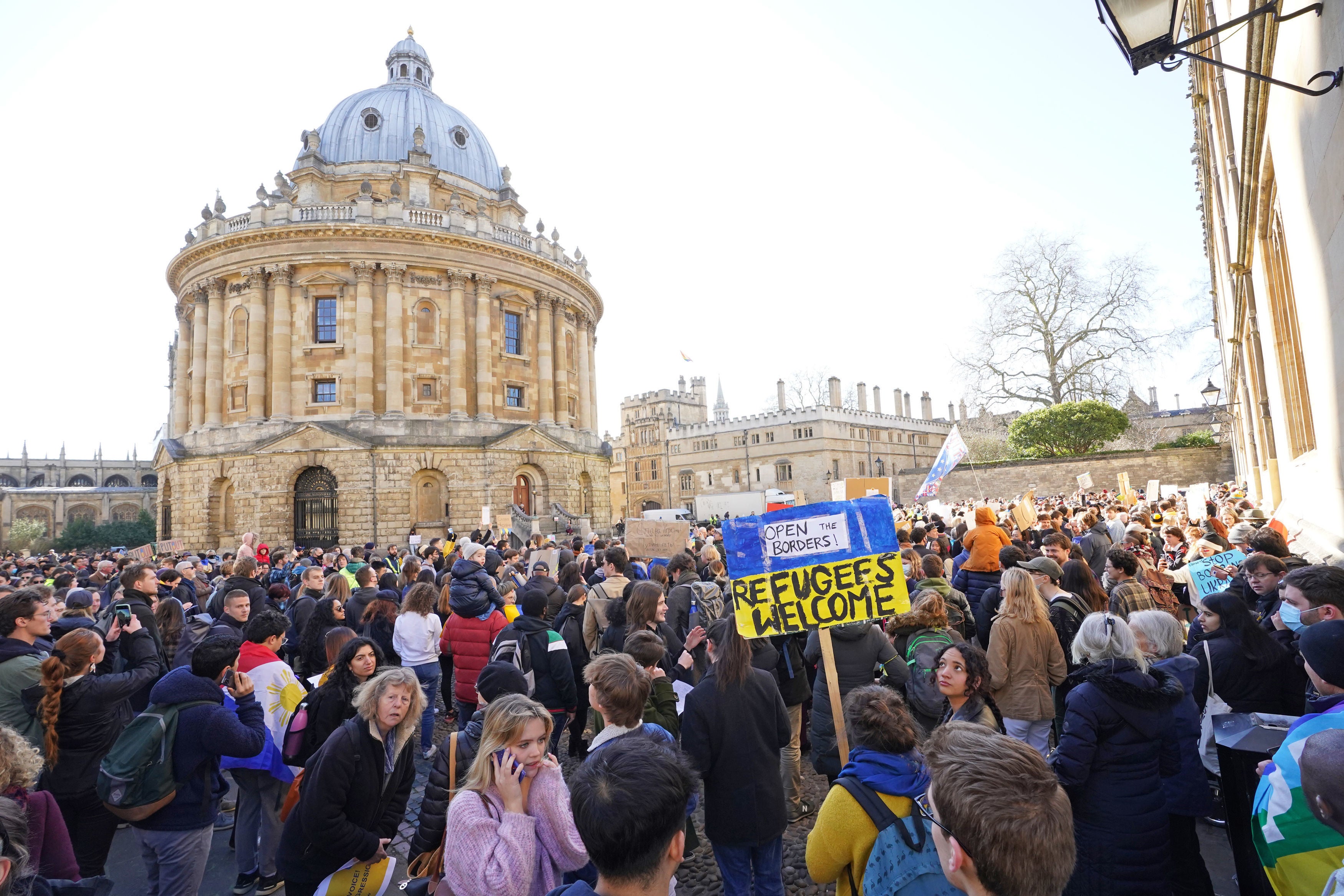
About 80,000 protesters thronged Prague’s central square on Sunday to support Ukraine. The Czech prime minister told the crowd the country still remembered the terror of Russian tanks rolling into the capital more than five decades ago.
Protesters filled the 750-metre-long Wenceslas Square, making it one of the biggest demonstrations in the country’s history, chanting and waving Ukrainian flags and signs with messages such as “Putin war criminal”.
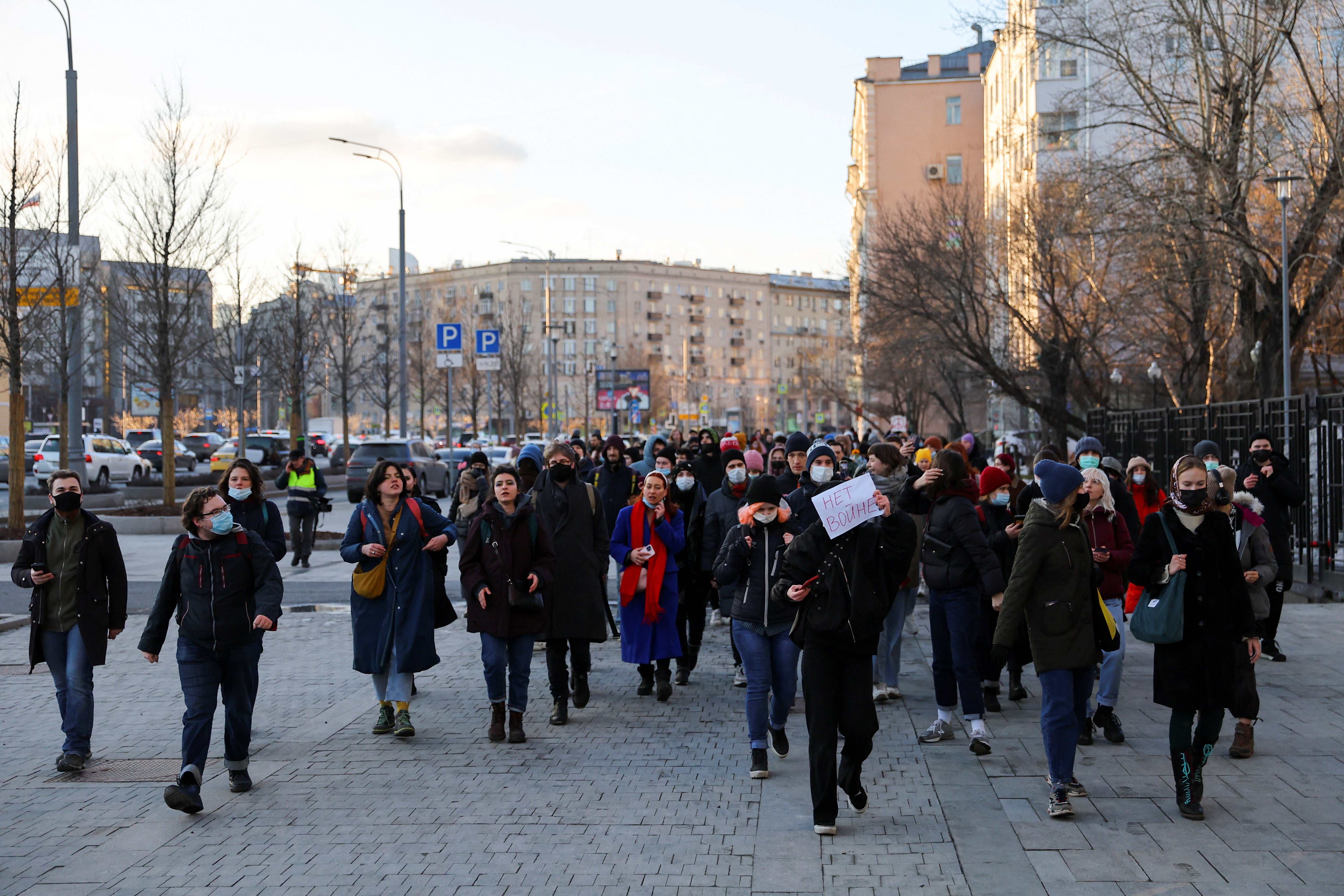
In central Madrid, thousands of protesters waved Ukrainian flags. They held signs reading “Peace”, “Stop Putin”, and “Putin, you should be scared: my grandmother is really angry”.
And in Denmark, roughly 400 demonstrators gathered in front of the Ukrainian embassy in Copenhagen where many lit candles and laid flowers to show their support for the Ukrainian people.
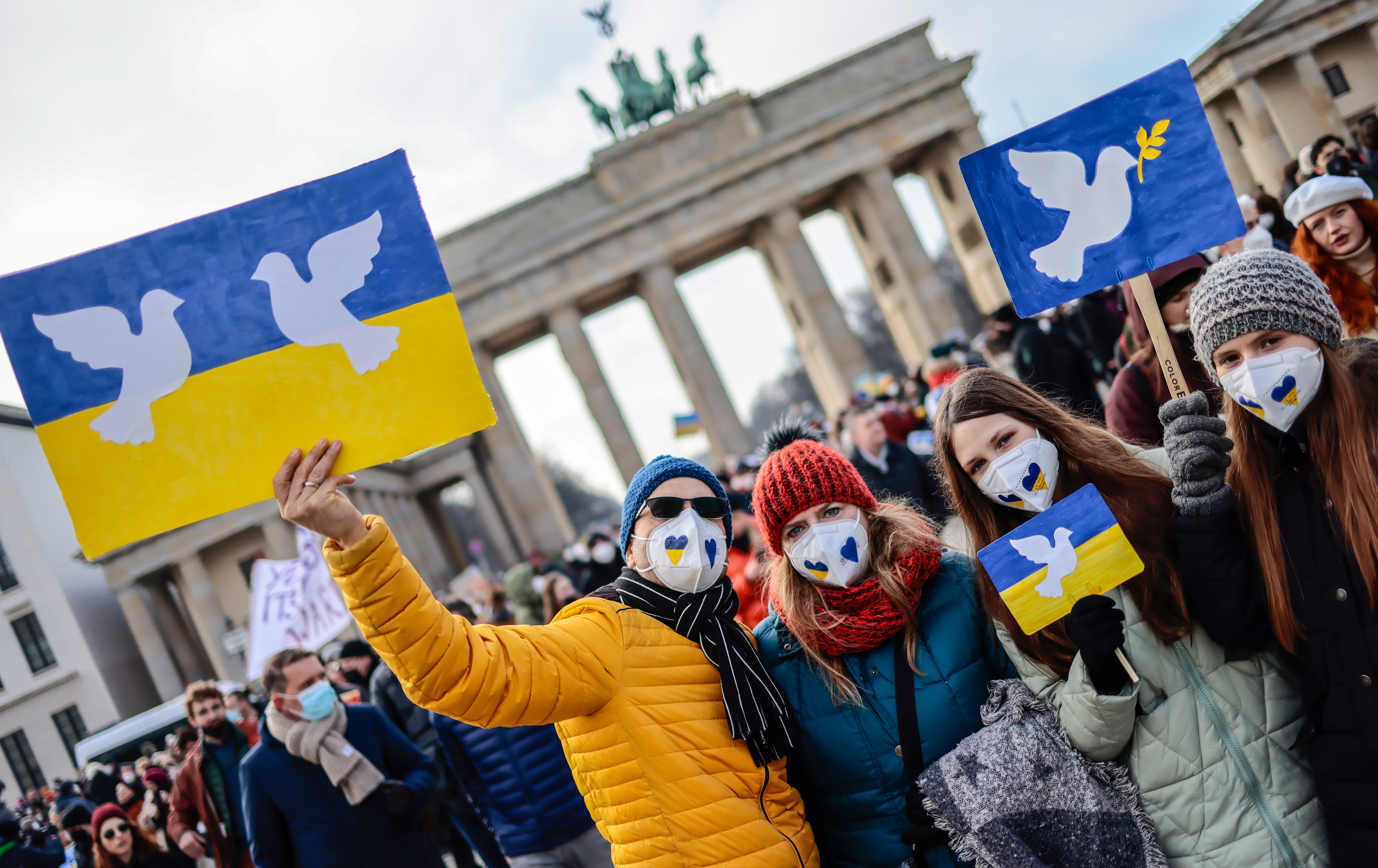
The protests took place as intense fighting continued in several cities across Ukraine on Sunday.
Russian troops entered Kharkiv, Ukraine's second city, overnight on Saturday but the area’s governor, Oleh Synehubovm, said it was now rid of Russian troops following street gun battles.
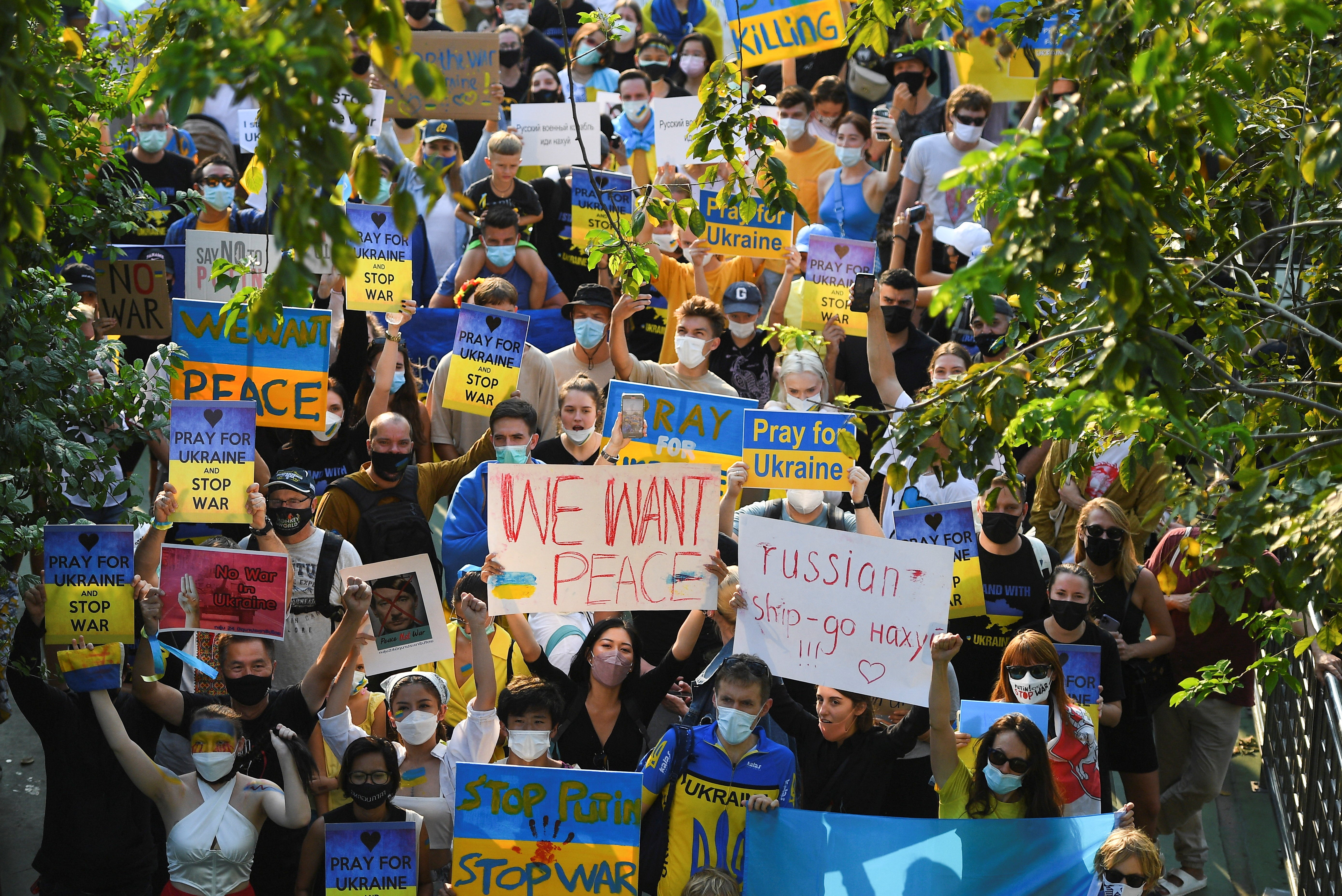
Ukraine claims 4,300 Russians have died in the whole invasion, although this has not been independently verified.
In a dramatic escalation of east-west tensions over Russia's invasion of Ukraine, Mr Putin later on Sunday ordered his nuclear forces to be put on high alert in response to what he called "aggressive statements" by leading Nato powers.
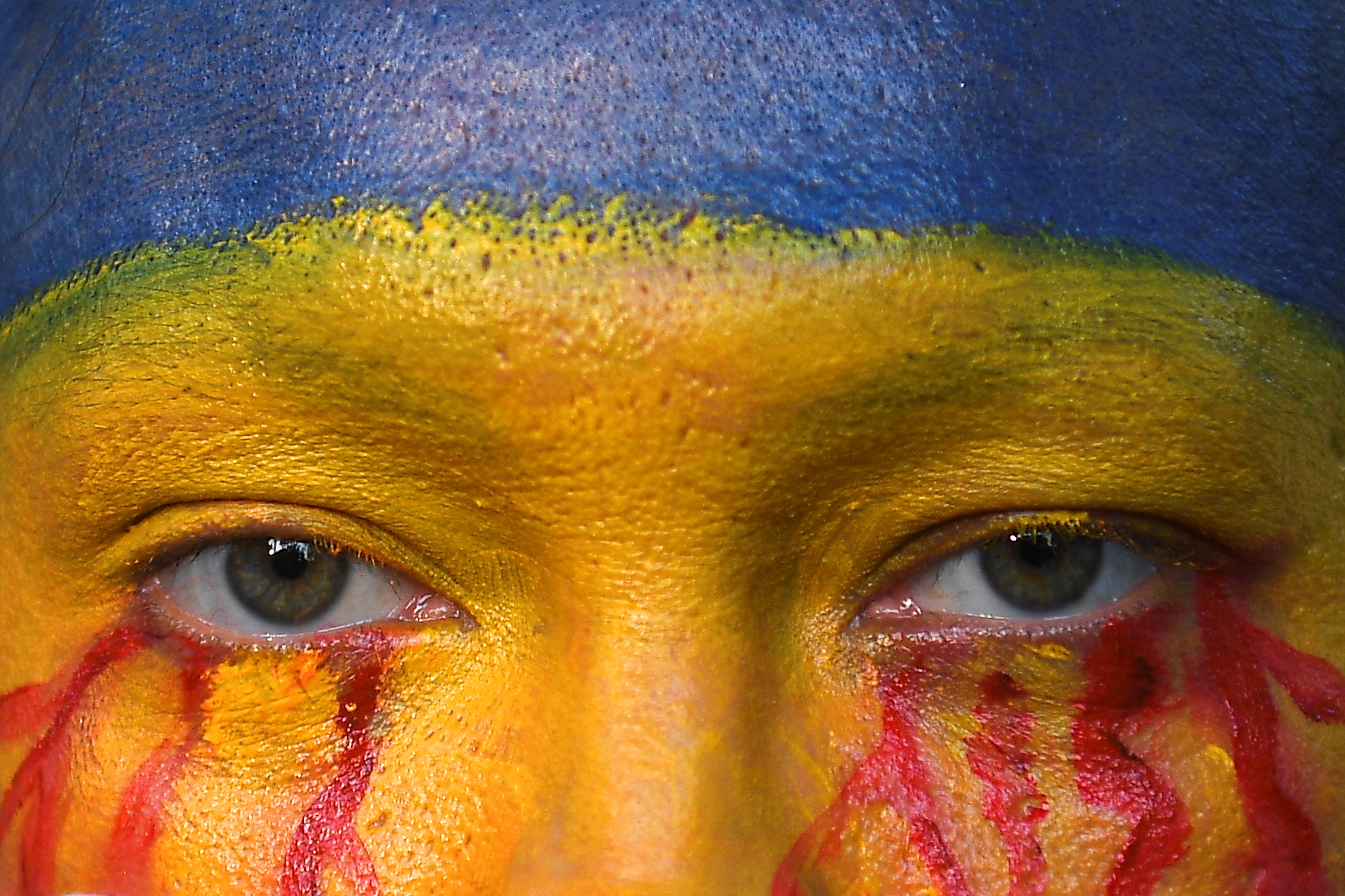
Amid the mounting tensions, Ukraine announced that a delegation would meet with Russian officials for talks.
But the Kremlin's ultimate intentions towards Ukraine, and what steps might be enough to satisfy Moscow, remained unclear.
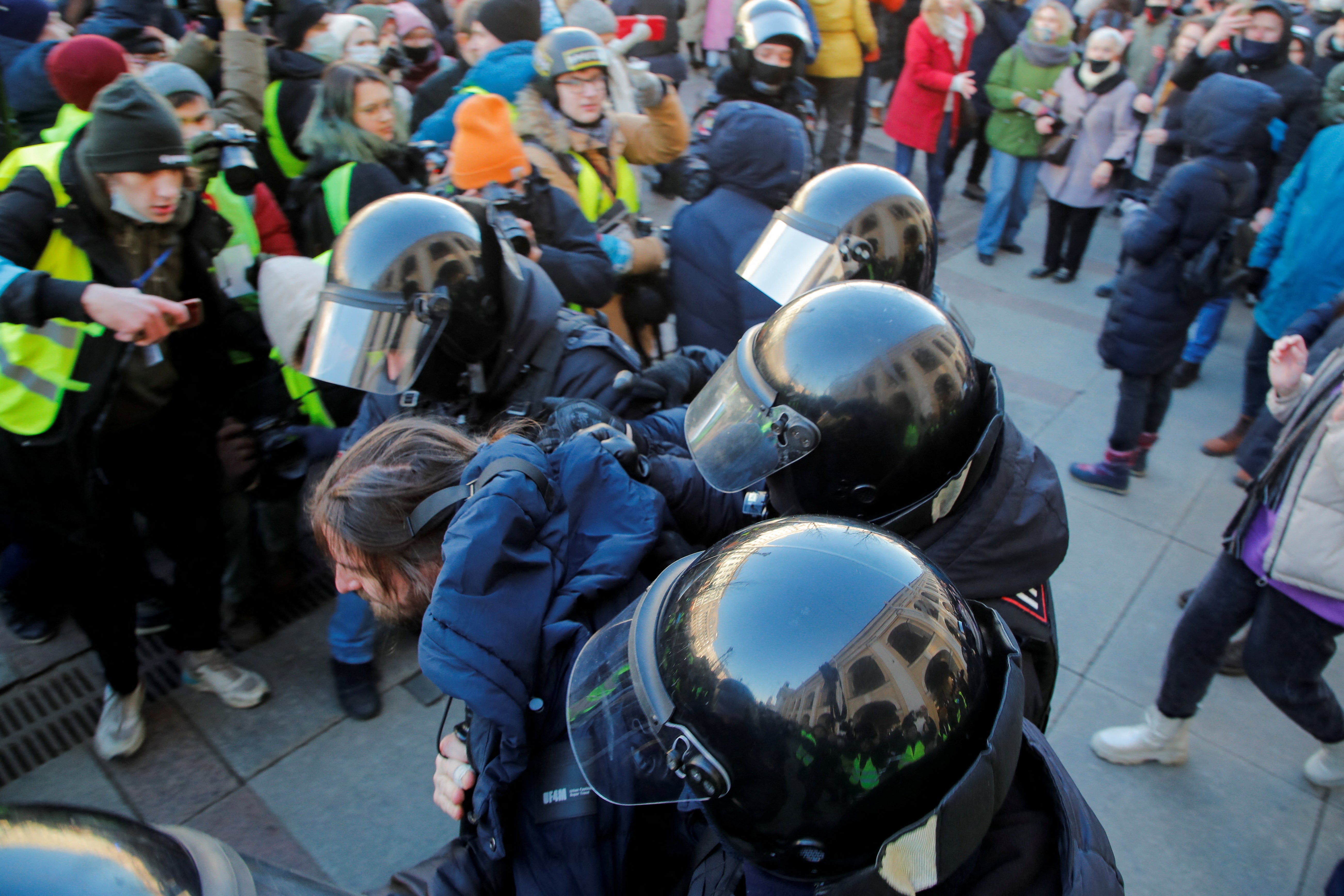
The fast-moving developments came as Russian troops drew closer to Kyiv, a city of almost 3 million, street fighting broke out in Kharkiv, and strategic ports in the country's south came under pressure from the invading forces.
Ukrainian defenders put up stiff resistance that appeared to slow the invasion.
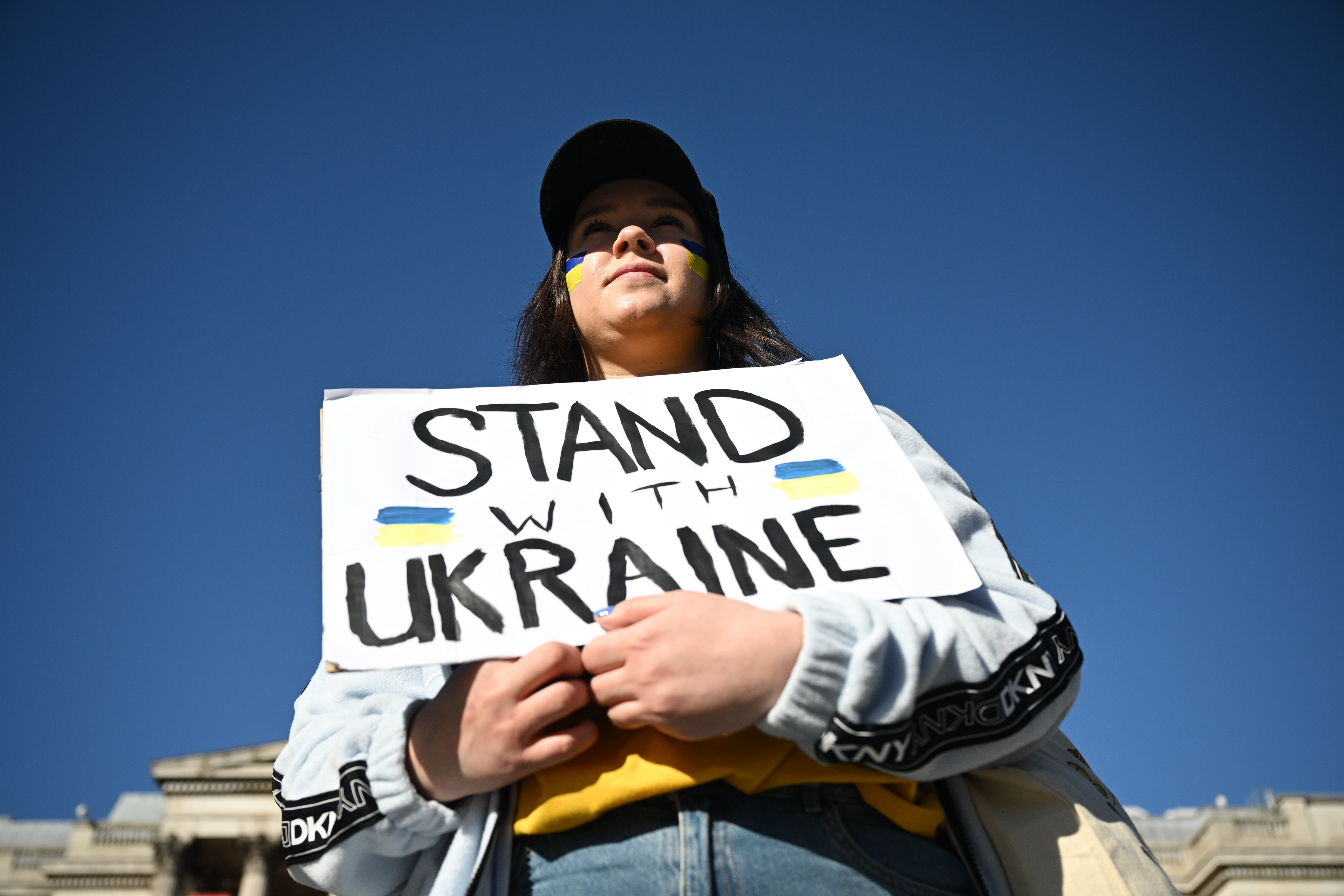
Mr Putin, in giving the nuclear alert directive, cited not only statements by Nato members but the hard-hitting financial sanctions imposed by the west against Russia, including the Russian leader himself.
Speaking at a meeting with his top officials, Mr Putin told his defence minister and the chief of the military's general staff to put nuclear forces in a "special regime of combat duty".
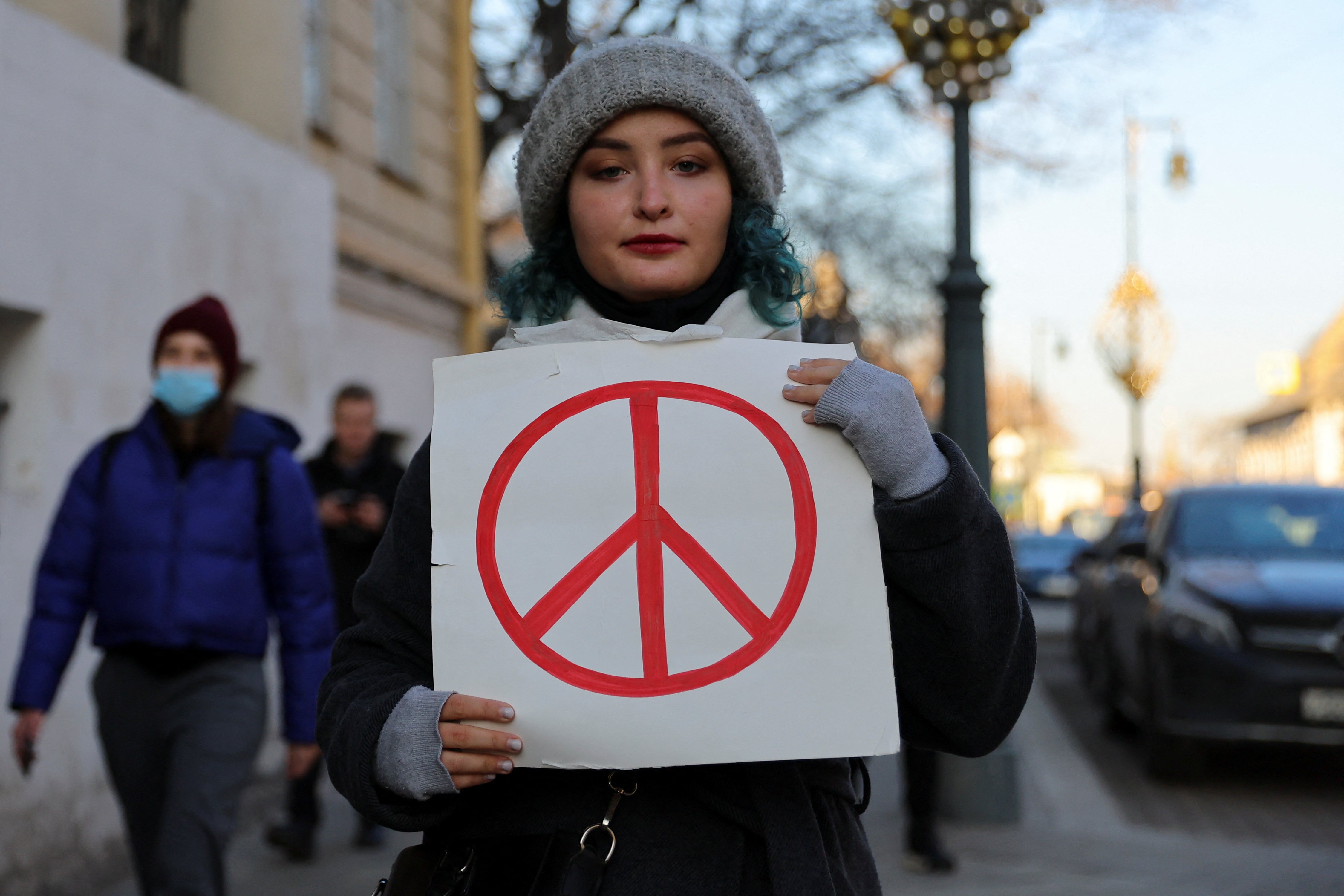
"Western countries aren't only taking unfriendly actions against our country in the economic sphere, but top officials from leading Nato members made aggressive statements regarding our country," the Russian president said in televised comments.
White House press secretary Jen Psaki said Mr Putin is resorting to a pattern he used in the weeks before launching the invasion, "which is to manufacture threats that don't exist in order to justify further aggression".
Join our commenting forum
Join thought-provoking conversations, follow other Independent readers and see their replies
Comments
Bookmark popover
Removed from bookmarks